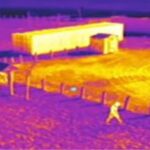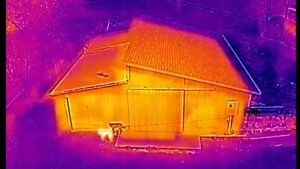Today’s consumer drones are no longer just for media production and recreational use. In fact, numerous drones are being used for professional applications (aside from filmmaking and real estate marketing) with the use of mounted thermal cameras.
Drone thermal imaging is quickly revolutionizing the worlds of public safety and home and building maintenance.
After all, aerial thermal imaging helps police find suspects or missing persons on hard-to-traverse terrain – in the daytime through canopies of trees or building structures, or at night in all kinds of conditions. Thermal imaging also helps firefighters see through smoke, find trapped people and identify hazardous “hot spots” that require special firefighting strategies. And on the building maintenance front, use of thermal imaging technology has exploded, with thermal photos and video capturing hidden water infiltration or energy loss.










Thermal Imaging sensors are commonly referred to terminology such as thermal camera, temperature camera, heat vision camera, infrared camera, thermal imaging sensor, heat signature camera, and even thermal heat vision sensor.
Among our many thermal imaging services is moisture detection and energy efficiency assessment for homes and commercial structures. Especially when done in conjunction with thermal photos and videos shot from the ground, aerial thermal imaging detects hidden moisture and energy loss.
More and more fire and police departments are realizing the need for drones when it comes to public safety. “White-hot” and “black-hot” thermography color palettes have been used for years to find missing persons or track down suspects. But the traditional aircraft used for such missions, like helicopters or small airplanes, have been too cost-prohibitive for most departments.
Contact Information
Follow Us